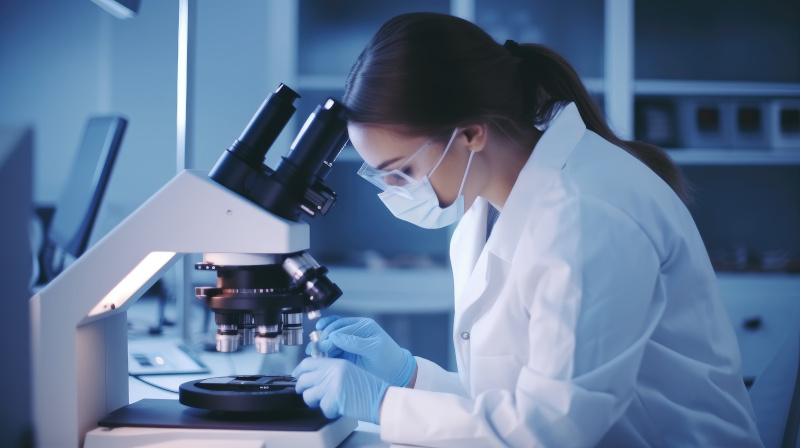
Biomedical laboratory technician: a growing profession
A Journey in the Educational Path and Job Opportunities in a Vital Sector in the Healthcare World
The Academic Path: Bachelor’s Degree and Specializations
The career of a biomedical laboratory technician begins with obtaining a three-year bachelor’s degree in Biomedical Laboratory Techniques. This program, offered by numerous universities in Italy and Europe, is structured with theoretical classes, practical laboratories, exercises, and internships, aimed at providing comprehensive training in the field of laboratory sciences and techniques. Students delve into disciplines such as biochemistry, microbiology, immunology, and clinical pathology, acquiring practical and theoretical skills to operate effectively and responsibly in various areas of biomedical and biotechnological analysis. To enroll in these courses, one must pass an admission test, the content of which varies depending on the chosen university, but generally includes questions on biology, chemistry, mathematics, and physics, as well as logical reasoning and text comprehension tests. After graduation, graduates can register with the Biomedical Laboratory Health Technicians Association and participate in continuing education courses under the national ECM (Continuous Medical Education) program to maintain and update their skills.
Professional Fields: Opportunities and Challenges
Biomedical laboratory technicians find numerous job opportunities in both the public and private sectors. In the public sector, it is possible to access job positions through public competitions organized by local health units or hospital companies. These competitions involve various selection phases, which may include written, practical, and oral tests, as well as the evaluation of qualifications and skills. In the private sector, laboratory technicians can work in analysis laboratories, research centers, private clinics, and pharmaceutical industries. Additionally, the ability to proficiently use the English language opens the door to international job opportunities as well.
Skills and Soft Skills: The Ideal Profile
A biomedical laboratory technician must possess a combination of technical skills and soft skills. Technical skills include the ability to operate specialized equipment, perform complex analyses, and maintain the highest standards of safety and quality. Required soft skills include reliability, precision, teamwork, and the ability to solve complex problems. These skills are crucial for successful operation in a dynamic and ever-evolving environment like biomedical laboratories.
A Profession in Evolution
The field of biomedical laboratories is constantly evolving, with new challenges and opportunities emerging regularly. The COVID-19 pandemic has highlighted the crucial importance of this profession in the global healthcare system. With advancing technology and a growing demand for sophisticated laboratory services, the profession of biomedical laboratory technician is poised to expand and offer increasingly diverse career opportunities.


